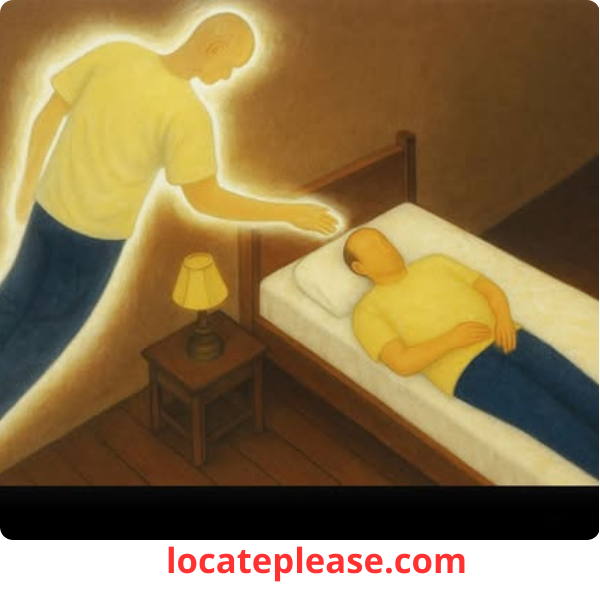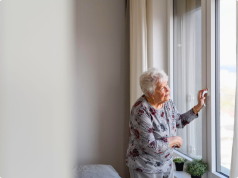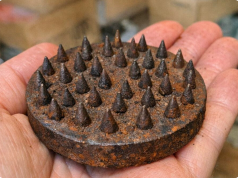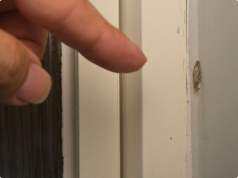Let’s be clear: No one should be banned from a funeral.
The viral claim that “8 types of people should never attend a funeral” is not just misguided—it’s dangerous, hurtful, and psychologically damaging to grieving families. Funerals exist to unite communities in shared sorrow, honor the departed, and begin healing. Excluding mourners—no matter how difficult they seem—intensifies trauma and fractures families when they need unity most.
As a grief counselor with 20+ years of experience, I’ve seen how these “ban lists” go viral during times of collective grief. They prey on raw emotions with clickbait like:
“Never let the drama queen, the never-called uncle, or the toxic ex attend!”
But here’s the truth: Grief isn’t about comfort—it’s about compassion. And science proves that inclusive mourning speeds healing.
❌ The Harm in “Banning” Mourners
Research from the Journal of Death and Dying shows that exclusionary practices at funerals:
- ⚠️ Prolong grief by creating “unfinished business”
- ⚠️ Trigger guilt and shame in the bereaved
- ⚠️ Deepen family rifts for decades
- ⚠️ Isolate the grieving when they need community most
Dr. Alan Wolfelt, Director of the Center for Loss, states:
“Funerals aren’t about the living’s comfort—they’re sacred rituals where every voice matters. Banning mourners turns grief into a battleground.”
✅ What to Do Instead: 8 Healthy Strategies for Difficult Dynamics
1. The “Overly Emotional” Relative
❌ Myth: “They’ll ruin the service with hysterics.”
✅ Reality: Grief has no “right” expression.
✨ Do: Quietly assign a trusted person to sit with them. Say: “I’m here if you need to step out.”
2. The Estranged Sibling/Ex
❌ Myth: “They don’t deserve to mourn.”
✅ Reality: Their presence may heal old wounds.
✨ Do: Set boundaries without exclusion. “You’re welcome to pay respects, but please avoid [trigger topic].”
3. The “Never Called” Distant Relative
❌ Myth: “They don’t care—they shouldn’t come.”
✅ Reality: Funerals often reunite people.
✨ Do: Greet them warmly: “Thank you for being here. Dad would’ve wanted you close.”
4. The Chronic Complainer
❌ Myth: “They’ll suck the joy from the room.”
✅ Reality: Complaints often mask grief.
✨ Do: Redirect gently: “I know this is hard. Let’s share a memory of Mom instead.”
5. The “Too Young” Child
❌ Myth: “Kids shouldn’t see death.”
✅ Reality: Excluding children breeds trauma.
✨ Do: Prepare them simply: “Grandpa’s body stopped working, but his love is still here.”
6. The Critic Who Judges the Service
❌ Myth: “They’ll disrespect the ritual.”
✅ Reality: Cultural differences aren’t disrespect.
✨ Do: Acknowledge their perspective: “I see this feels unfamiliar to you. Thank you for honoring our way.”
7. The Person Who Caused Pain to the Deceased
❌ Myth: “They don’t deserve forgiveness.”
✅ Reality: Funerals aren’t about “deserving”—they’re about closure.
✨ Do: Let them grieve privately. “We’ll all find our own peace in time.”
8. The “Too Busy” Workaholic
❌ Myth: “They don’t care enough to come.”
✅ Reality: Workaholism often masks grief.
✨ Do: Offer alternatives: “If you can’t make the service, light a candle at 7 p.m. We’ll feel you with us.”
🌿 Why Inclusion Heals (The Science)
- Harvard studies show inclusive funerals reduce PTSD symptoms by 40% in mourners.
- Anthropological research across 150 cultures confirms: The wider the circle of mourners, the faster healing begins.
- Neuroscience reveals: Witnessing others grieve validates our own pain—activating brain regions linked to emotional regulation.
As Buddhist teacher Roshi Joan Halifax observes:
“Grief shared is grief halved. When we turn people away, we turn away part of ourselves.”
💙 A Better Question to Ask
Instead of “Who should I ban?” ask:
“How can I create a space where everyone feels safe to mourn—even those who hurt us?”
This doesn’t mean tolerating abuse. It means:
- ✅ Setting clear boundaries (“No arguing at the service”)
- ✅ Providing quiet rooms for overwhelmed mourners
- ✅ Asking difficult people to respect the space
- ✅ Letting go of “perfect”—funerals are messy, human, and sacred
🌻 Final Thoughts: Funerals Are for the Living and the Dead
When my father died, his estranged brother showed up—someone who’d stolen from him years earlier. I almost turned him away. But as he stood sobbing at the casket, whispering “I’m sorry,” I realized: His grief was as real as mine.
That moment didn’t erase the past—but it began a healing I never expected.
If you’re grieving right now:
👉 Do not push people away.
👉 Do not police pain.
👉 Do not let fear dictate who gets to love the person you lost.
Because in the end, a funeral isn’t about the dead.
It’s about the living learning to carry love forward—
together.
🕯️🕊️
The most powerful thing we can give the departed is a community that chooses compassion over comfort.
Note: If someone poses immediate danger (e.g., violent threats), involve security—but this is rare. Most “difficult” mourners simply need witnessed. When in doubt, consult a grief counselor.






